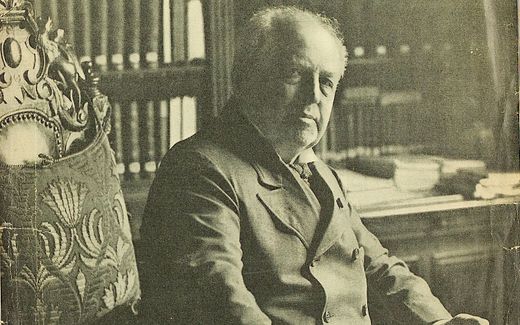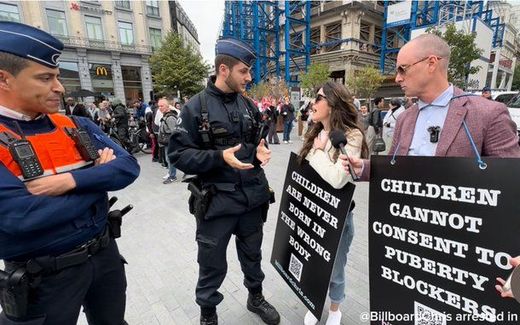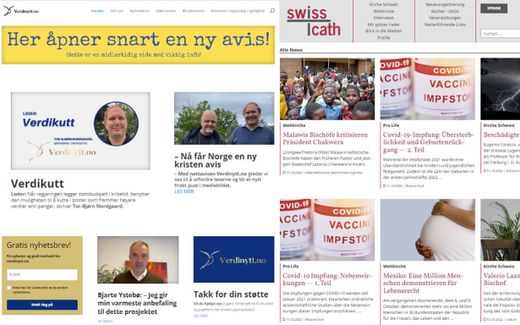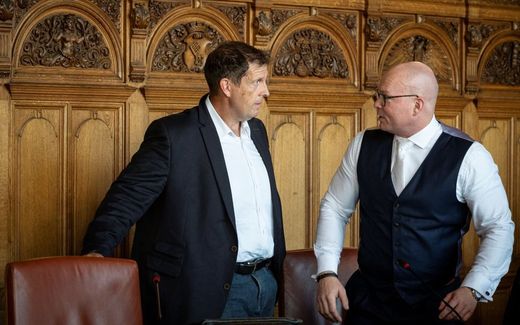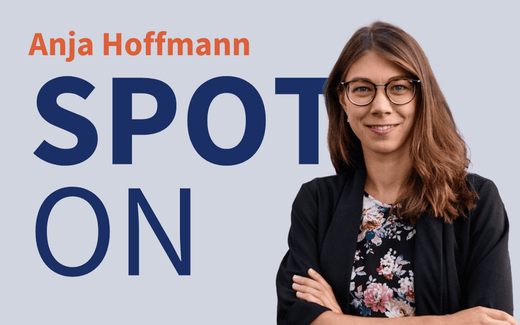This is why a Christian sees news differently
06-11-2025
Christian Life
Eunice Hoekman-van Stuijvenberg, RD
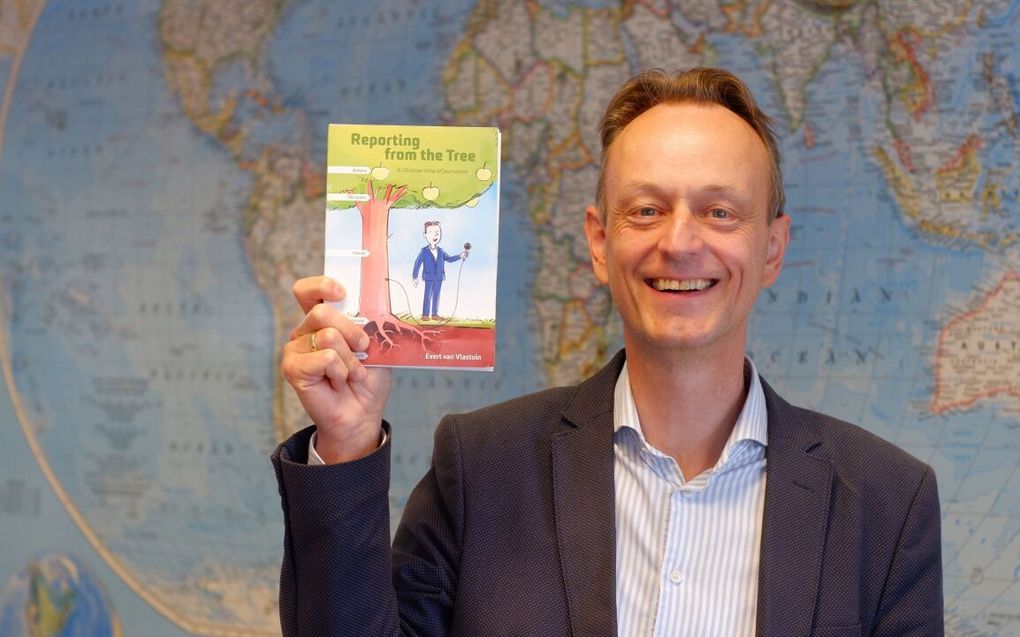
Evert van Vlastuin with his new book. Photo CNE.news
Christian Life
A journalist’s work is inextricably linked to their faith and worldview. Yet, reflection on this connection is scarce, says Evert van Vlastuin, editor-in-chief of the Christian news website CNE.news. In his recently published book, “Reporting from the Tree: A Christian View of Journalism,” he offers a starting point.
A recurring theme in journalism courses at Christian colleges: a discussion about whether Christian journalism even exists. Aren’t Christian journalists supposed to simply deliver professional work, just like their secular colleagues? Inform, fact-check, and engage in fact-finding? Do they necessarily write a different story about a political debate or a court case?
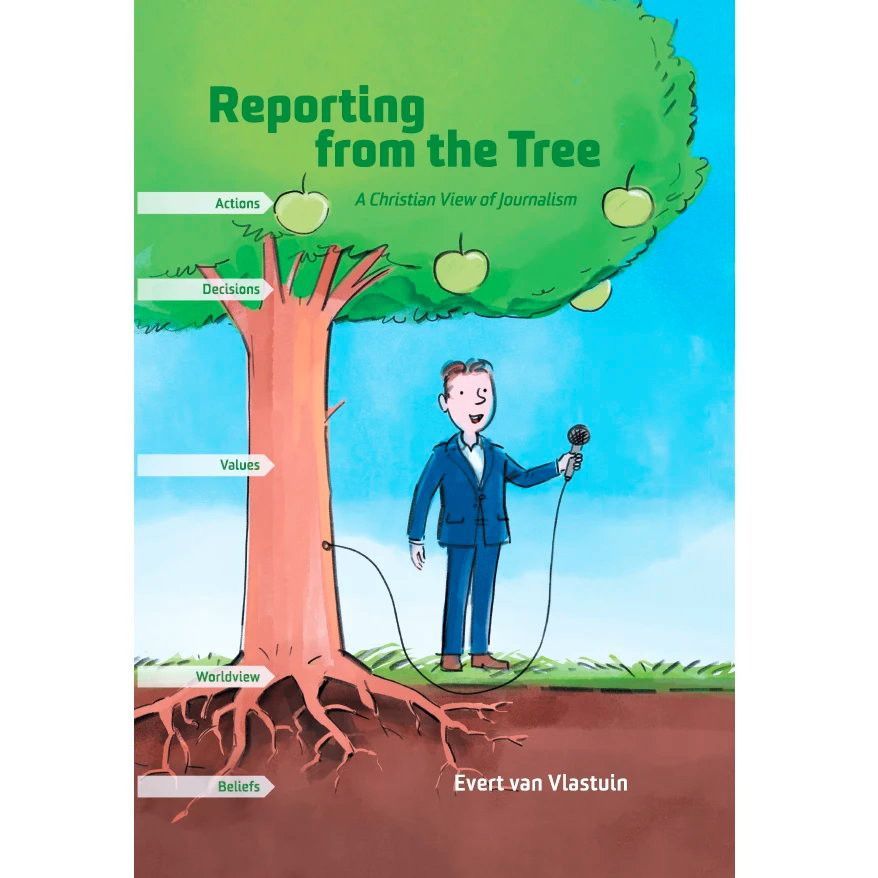
After completing a course, these questions don’t suddenly disappear, notes Van Vlastuin, who is the editor-in-chief of Christian Network Europe. In the foreword to his book, he writes about how he has seen journalists struggle to connect their daily work with their faith and assumptions.
What exactly do they struggle with?
“Journalists often see their work as a craft, disconnected from their worldview. Of course, they value honesty and truth, but these norms and values serve primarily as safety nets. They don’t determine the direction of their work. And then you get those sceptical questions about the difference between the Christian pastry chef and his secular neighbour.”
Do you mean questions like, ‘Don’t cream puffs from a Christian baker and his secular colleague just taste exactly the same?’ What would your answer be to such questions?
“He might bake the same cream puffs, but if you look at his entire business operation, the difference is clear. Our worldview determines what we consider important. Christian journalists view the same government crisis, but differently. They use the same tools to find the truth, but their motives are different. They also place a different emphasis. The overall impact of a Christian newspaper reveals the difference. The story of the tree, to which the book title refers, makes that clear.”
“The secular press is also rooted in unproven assumptions.”
Why did you choose that comparison?
“It shows that the fruits on the tree —your actions— are connected to the roots — what you believe. And to the values that stem from your faith. Vocational training programs typically focus one-sidedly on knowledge and skills. At the same time, students need to know how their daily work relates to their worldview. Even people who work at a high level struggle with this.”
It is sometimes claimed that Christians do journalism from their worldview, and others do not.
“The secular press is also rooted in unproven assumptions. This is clearly based on a worldview. Because it’s rarely discussed, everyone is somewhat illiterate in this area. Christians are a little less so, but they, too, find this topic difficult.”
At the same time, there’s a tension here. You write in your book: 'You must continue to strive for neutrality.'
“In the sense that you write things accurately. Also, readers of a Christian newspaper need to know how a pro-choice person thinks. If you write about a parliamentary proposal to elevate abortion to a human right, a liberal should say: Yes, I recognise myself in this. That’s part of your job; that’s professional. But you can ask questions or describe problems that arise from your worldview. In a commentating editorial, a newspaper can express its own unique perspective.”
“A Christian knows that the world doesn’t move aimlessly.”
What do you think is the importance of Christian journalism?
“Very simple: serving your fellow man, your target audience, society, and hopefully the Kingdom of God as well. You try to figure out: what’s needed now? News can be defined as anything that changes the state of affairs in the world. A Christian knows that the world doesn’t move aimlessly. It moves from A to Z according to God’s plan. This knowledge results in different journalistic choices.”
Evert's book can be ordered online at Reporting from the Tree.
How do these choices show in practice?
“In any case, because the media pay attention to the Gospel’s progress through world history. When I was thinking about this, I read Revelation 6. The six seals perfectly summarise history, including the world in which we now practice journalism. But the white horse leads the way, with the Gospel. Conflicts, revolutions, and famines follow. Revelation 6 doesn’t offer a program, but it does offer an agenda. These are the issues that matter; this is where the decisions are made.”
Christian media outlets are deeply connected to their target audience. What does this mean for their agenda?
“The advantage of such a close relationship is that the editors understand the needs and discussions. The disadvantage is that they are so tied to the target audience that they forget the main points of Revelation 6. The target audience can also become secularised.”
Are these developments negative by definition?
“We need wisdom to handle this properly. Even fundamental issues can lose their weight, such as the authority of Scripture or marriage. Christian media shouldn’t pander to their followers.”
A target audience that is close to you does not always respond well to revealing journalism.
“There is definitely a demand for sunshine journalism. Something like: write down the good things, the good things that happen at the mission field. Such journalism is dangerous because bad things happen, too. If you conceal them, you mislead not only the people who donate money, but also the young people being trained for the mission field. The Dutch ethics professor W.H. Velema once wrote in this regard that evil must be unmasked. That is a task of journalism.”
This article was translated by CNE.news and published by the Dutch daily Reformatorisch Dagblad on November 3, 3025
Related Articles

